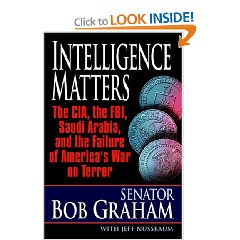I was talking to a friend the other day about why major (multi-billion dollar a year) companies are not good at innovation, and he recommended this book. Wow! Looking at the companies I know and admire, it all became clear. Innovation *is* disruptive; the most promising marketplace is the opposite of their existing defense and intelligence clients–the people that do not get adequate intelligence support from the existing cash cow; and all of the middle and senior managers (Washington-based) are incrementalists who had succeeded at building bodies-for-hire accounts over decades.
For those who feel an intuitive faith in disruptive endeavors, this book is inspiring and also instructional. It specifically suggests that entrants will beat incumbents when the objective is to substitute lower-cost good-enough solutions for client needs that are not satisfied by high end production. However, it also makes clear that the *last* place you want to sell disruptive solutions in to is the existing high end client base. Go for new customers and new contexts.
In government intelligence terms: stop trying to teach the spies that they need to do a better job on open sources of information in 33+ languages. Instead, go after the Departments of State, Commerce, Treasury, Agriculture, Homeland Security, and the elements of the Department of Defense that do not get adequate classified intelligence support. Establish Open Source Intelligence (OSINT) as a viable endeavor there, and in ten years come back and crush the spies in head on competition.
Three “litmus tests” that the authors put forward are very helpful to those seeking to monetize disruptive new ideas:
1) Is there a population of clients that has historically been under-funded, under-staffed, and have as a result *gone without*?
2) Is this group likely to appreciate lower cost “good enough” solutions?
3) Is it possible to be profitable while providing these clients lower cost good enough solutions (e.g. monitoring risk around the world, at the sub-state level, something the spies simply cannot do effectively despite their $50 billion a year budget)?
Another major lesson I drew from this book is that alternative channels can be phenomenally successful. One example the book uses: instead of selling low-cost throw away cameras through photography shops oriented to high-end perfectionists, move them into grocery stores and discount stores for the low-end market that could not afford a traditional camera. This *makes sense.* Hence, instead of trying to sell low-cost open source services to the people who think they have the most to lose from promoting them (the mandarins of the high-cost secrets), go instead to the least well-served end-users, the logisticians, acquisition managers, diplomats, etcetera, and get them to test localized rather than centralized solutions that then “explode” as other end-users see the low-cost success and emulate through decentralized adoption of new best practices.
The last half of the book is loaded with stuff useful to how I am going to structure my relationship with any major corporation–it focuses on a number of key factors including scale, profitability over growth, proprietary end to end solutions in the beginning, transitioning rapidly to open distributed solutions at the right moment, and ensuring that the team members are *not* (NOT) incrementalist line managers that succeeded by going along within a status quo system.
The following quote captures my perception of the imperfection of the guys at the top that don't get it: “In many ways, the managers that corporate executives have come to trust the most because they have consistently delivered the needed results in core businesses cannot be trusted to shepherd the creation of new growth.” (Page 183).
The book goes on to discuss the conflict between the traditional processes of managing traditional businesses, the conflict between traditional business values versus those of disruptive innovators (who can tend to alienate and aggravate executives used to having life just so), and between the “pace” of big organizations that need 12 months to think about an opportunity, and small “fleet of foot” innovators that can evaluate, act, write a proposal, and win million-dollar jobs over a week-end.
The authors are generally negative about business unit consolidation, and make the point that the bigger the business gets, the more process takes precedence over people. They specifically caution against a strategy of acquisition as a means of growth, documenting the terrible toll this can take as a cash flow drain, in essence saying that really big growth cannot come from incrementalist approaches. I put the book down with the feeling that the really big companies need to think seriously about launching spin-offs, as Charles Schwab did, and the really small companies, like mine, have a fighting shot at beating the hell out of the established beltway bandits who are too slow, too arrogant, and too rich to be serious about innovation for the future.
This book made me smile, and it made me think. Super piece of work.
Here are some recently published books that can be combined with this one to reintegrate and re-energize our economy:
The Battle for the Soul of Capitalism: How the Financial System Underminded Social Ideals, Damaged Trust in the Markets, Robbed Investors of Trillions – and What to Do About It
Blessed Unrest: How the Largest Movement in the World Came into Being and Why No One Saw It Coming
Natural Capitalism: Creating the Next Industrial Revolution
The Fortune at the Bottom of the Pyramid: Eradicating Poverty Through Profits (Wharton School Publishing Paperbacks)
The Ecology of Commerce
Cradle to Cradle: Remaking the Way We Make Things
One from Many: VISA and the Rise of Chaordic Organization











